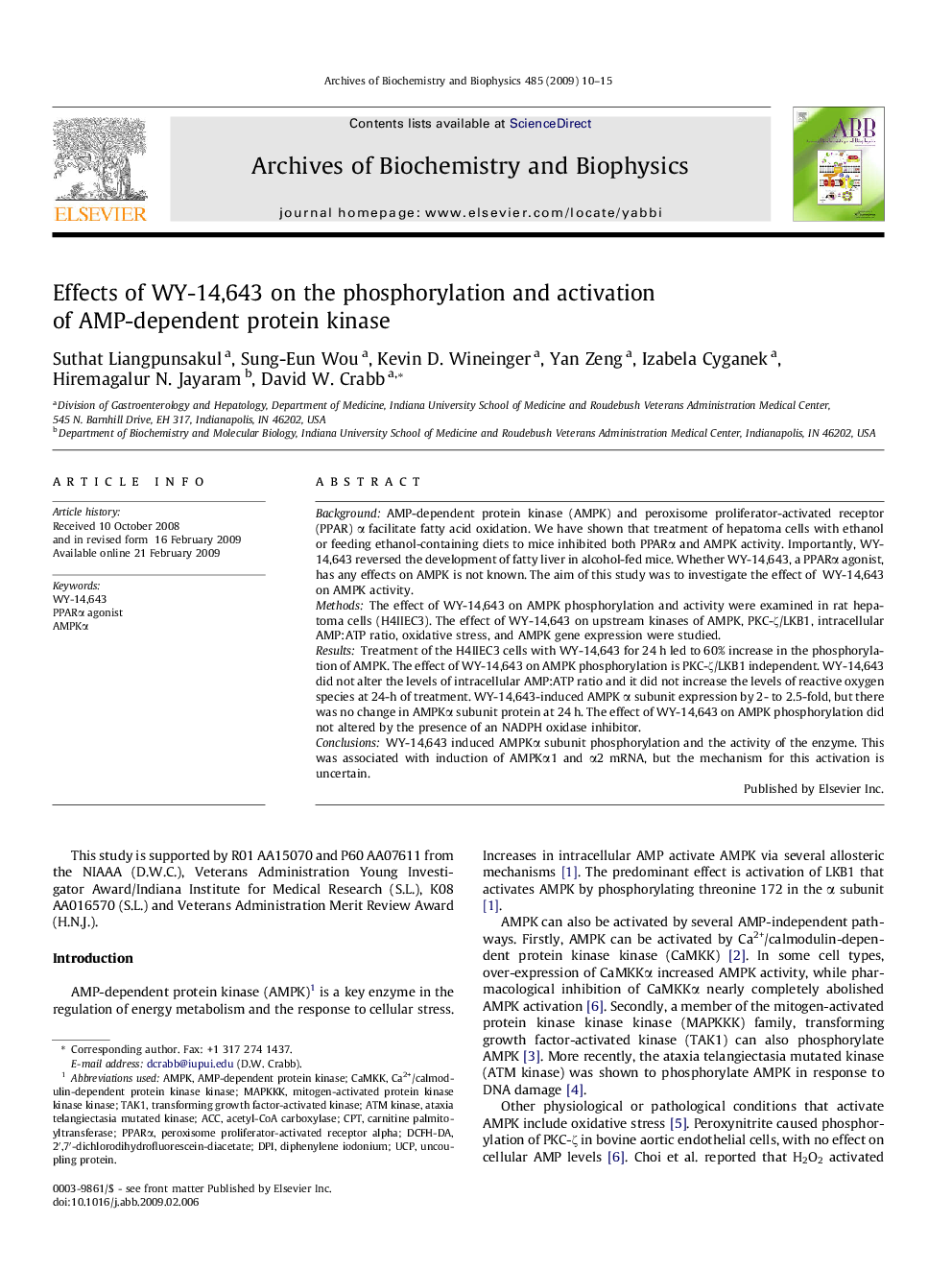| Article ID | Journal | Published Year | Pages | File Type |
|---|---|---|---|---|
| 1926336 | Archives of Biochemistry and Biophysics | 2009 | 6 Pages |
BackgroundAMP-dependent protein kinase (AMPK) and peroxisome proliferator-activated receptor (PPAR) α facilitate fatty acid oxidation. We have shown that treatment of hepatoma cells with ethanol or feeding ethanol-containing diets to mice inhibited both PPARα and AMPK activity. Importantly, WY-14,643 reversed the development of fatty liver in alcohol-fed mice. Whether WY-14,643, a PPARα agonist, has any effects on AMPK is not known. The aim of this study was to investigate the effect of WY-14,643 on AMPK activity.MethodsThe effect of WY-14,643 on AMPK phosphorylation and activity were examined in rat hepatoma cells (H4IIEC3). The effect of WY-14,643 on upstream kinases of AMPK, PKC-ζ/LKB1, intracellular AMP:ATP ratio, oxidative stress, and AMPK gene expression were studied.ResultsTreatment of the H4IIEC3 cells with WY-14,643 for 24 h led to 60% increase in the phosphorylation of AMPK. The effect of WY-14,643 on AMPK phosphorylation is PKC-ζ/LKB1 independent. WY-14,643 did not alter the levels of intracellular AMP:ATP ratio and it did not increase the levels of reactive oxygen species at 24-h of treatment. WY-14,643-induced AMPK α subunit expression by 2- to 2.5-fold, but there was no change in AMPKα subunit protein at 24 h. The effect of WY-14,643 on AMPK phosphorylation did not altered by the presence of an NADPH oxidase inhibitor.ConclusionsWY-14,643 induced AMPKα subunit phosphorylation and the activity of the enzyme. This was associated with induction of AMPKα1 and α2 mRNA, but the mechanism for this activation is uncertain.
